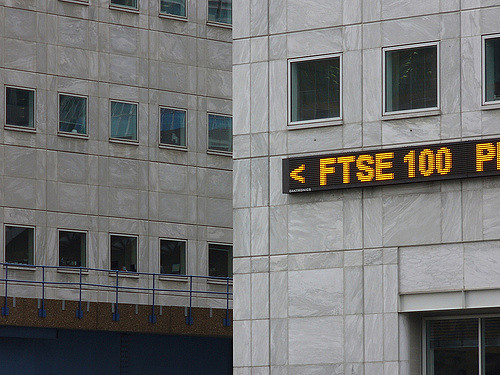UK's FTSE 100 gets a lift from commodities as U.S. inflation data looms
Data on Tuesday showed Britain's unemployment rate fell to its lowest since 1974 at 3.6% in the three months to July as more people left the labour market, while wages picked up pace adding to signs of price pressures. "It was a strong set of numbers and the (central) bank will be particularly concerned about the wages figures that again have come in on the strong side," said Stuart Cole, head macro economist at Equiti Capital.

- Country:
- United Kingdom
UK's main index ticked up in choppy trading on Tuesday on gains in commodity linked shares, while mixed labour market data pointed to more headache for the Bank of England looking to rein in surging inflation. Global investors are also closely tracking crucial inflation figures from the United States ahead of the Federal Reserve's policy meeting next week. Hopes that the reading would add to recent indications that inflation had peaked buoyed Asian markets earlier in the day.
The benchmark FTSE 100 index rose 0.2% at 8:15 GMT. Mining stocks added 1.1% to extend a three-day rally as a weaker dollar boosted metal prices.
Oil majors BP and Shell gained 1.3% and 0.8% respectively, as crude prices climbed on concerns over tight supply. Data on Tuesday showed Britain's unemployment rate fell to its lowest since 1974 at 3.6% in the three months to July as more people left the labour market, while wages picked up pace adding to signs of price pressures.
"It was a strong set of numbers and the (central) bank will be particularly concerned about the wages figures that again have come in on the strong side," said Stuart Cole, head macro economist at Equiti Capital. "The argument is certainly there for continued aggressive tightening in interest rates because the wages itself are indicative of an underlying boost to inflation in the UK."
Traders now see an 80% chance of a 75 basis-point hike by the BoE next week. Meanwhile, grocery inflation hit 12.4% in the four weeks to Sept. 4, another record, adding 571 pounds ($670) to the average annual grocery bill, according to market researcher Kantar.
Ocado Group and Marks & Spencer fell 12.2% and 2.2%, respectively, after their joint venture Ocado Retail downgraded its full-year outlook, saying customers are trying to navigate the cost of living crisis by buying fewer products and trading down to cheaper items. The retail sector, among the worst performing sectors this year, declined 1.2%.
Retail has tumbled 30.7% so far in 2022, as shoppers tightened their belts in the face of rising prices. Banks eased 0.4%, snapping a three-day rally.
Aveva Group Plc gained 3.1% after Sky News reported that French industrial group Schneider Electric was nearing a deal to take full control of the British software company for about 3.5 billion pounds ($4.1 billion).
(This story has not been edited by Devdiscourse staff and is auto-generated from a syndicated feed.)
ALSO READ
British Bobsledder Faces Ban: Arran Gulliver's Doping Scandal
Asian Stock Markets Surge Amid Hopes of Softer U.S. Tariffs
Market Volatility: Asian Stocks Tumble Amid Tariff Uncertainty
Indian Wrestlers Grapple for Glory at Asian Championship
Mamata Banerjee Lures British Investment with Historical Ties and Economic Growth










